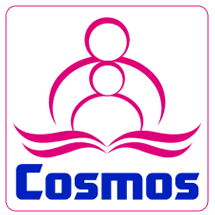A REVIEW ON SLEEP AND TRAVEL FATIGUE ON MATCH PERFORMANCE IN FOOTBALL: IMPACT OF CIRCADIAN RHYTHM DISRUPTION AND JET LAG
DOI:
https://doi.org/10.53555/ephijer.v2i1.154Abstract
The present study investigates the effects of sleep and travel fatigue on football match performance, with a focus on the disruptions caused by circadian rhythm misalignment and jet lag. Football teams regularly travel across time zones for international competitions, exposing athletes to circadian rhythm disruptions that can impair their performance. A systematic review of 20 studies published between 2000 and 2017 was conducted, examining the relationship between sleep quality, travel-induced fatigue, and football performance outcomes. The results indicate that poor sleep quality and the associated fatigue due to long-distance travel significantly affect match performance, with athletes experiencing reduced reaction times, decreased endurance, and impaired decision-making abilities. Furthermore, jet lag and circadian rhythm disruption were found to negatively influence physiological markers such as heart rate variability and muscle recovery. These findings underscore the importance of managing sleep and recovery protocols for football players, particularly during international travel, to optimize performance.
References
2. Baehr, E., Revelle, W., & Eastman, C. (2000). Individual differences in the phase and amplitude of the human circadian temperature rhythm: With an emphasis on morningness-eveningness. Journal of Sleep Research, 9(2), 117–127. https://doi.org/10.1046/j.1365-2869.2000.00202.x
3. Barger, L. K., Wright, K. P., Hughes, R. J., & Czeisler, C. A. (2004). Daily exercise facilitates phase delays of circadian melatonin rhythm in humans. American Journal of Physiology-Endocrinology and Metabolism, 287(5), E1013–E1021.
4. Barte, J. C. M., Nieuwenhuys, A., Geurts, S. A. E., & Kompier, M. A. J. (2017). Fatigue experiences in competitive soccer: development during matches and the impact of general performance capacity. Fatigue: Biomedicine, Health & Behavior, 5(4), 191–201. https://doi.org/10.1080/21641846.2017.1377811.
5. Brownstein CG, Dent JP, Parker P, Hicks KM, Howatson G, Goodall S, Thomas K. Etiology and Recovery of Neuromuscular Fatigue following Competitive Soccer Match-Play. Front Physiol. 2017 Oct 25;8:831. doi: 10.3389/fphys.2017.00831. PMID: 29118716; PMCID: PMC5661001.
6. Choy M, Salbu RL. Jet lag: current and potential therapies. P T. 2011 Apr;36(4):221-31. PMID: 21572778; PMCID: PMC3086113.
7. Daurat, A., Benoit, O., & Buguet, A. (2000). Effects of zopiclone on the rest/activity rhythm after a westward flight across five time zones. Psychopharmacology, 149, 241–245.
8. Drust, B., Waterhouse, J., Atkinson, G., Edwards, B., & Reilly, T. (2005). Circadian rhythms in sports performance: An update. Chronobiology International, 22(1), 21–44.
9. Flower, D., Irvine, D., & Folkard, S. (2003). Perception and predictability of travel fatigue after long-haul flights: A retrospective study. Aviation, Space, and Environmental Medicine, 74, 173–179.
10. Fullagar, Hugh & Skorski, Sabrina & Duffield, Rob & Julian, Ross & Bartlett, Jon & Meyer, Tim. (2016). Impaired sleep and recovery after night matches in elite football players. Journal of sports sciences. 34. 1-7. 10.1080/02640414.2015.1135249.
11. Fullagar, Hugh & Skorski, Sabrina & Duffield, Rob & Hammes, Daniel & Meyer, Tim. (2014). Sleep and Athletic Performance: The Effects of Sleep Loss on Exercise Performance, and Physiological and Cognitive Responses to Exercise. Sports Medicine. 45. 10.1007/s40279-014-0260-0.
12. Goel N, Basner M, Rao H, Dinges DF. Circadian rhythms, sleep deprivation, and human performance. Prog Mol Biol Transl Sci. 2013;119:155-90. doi: 10.1016/B978-0-12-396971-2.00007-5. PMID: 23899598; PMCID: PMC3963479.
13. Jäger, R., Kerksick, C.M., Campbell, B.I. et al. International Society of Sports Nutrition Position Stand: protein and exercise. J Int Soc Sports Nutr 14, 20 (2017). https://doi.org/10.1186/s12970-017-0177-8
14. Lee A, Galvez JC. Jet lag in athletes. Sports Health. 2012 May;4(3):211-6. doi: 10.1177/1941738112442340. PMID: 23016089; PMCID: PMC3435929.
15. Melool, S. (2016). Jet Lag and the Biological Clock. The Science Journal of the Lander College of Arts and Sciences, 10(1). Retrieved from https://touroscholar.touro.edu/sjlcas/vol10/iss1/5
16. Noakes TD. Fatigue is a Brain-Derived Emotion that Regulates the Exercise Behavior to Ensure the Protection of Whole Body Homeostasis. Front Physiol. 2012 Apr 11;3:82. doi: 10.3389/fphys.2012.00082. PMID: 22514538; PMCID: PMC3323922.
17. Peter M Fowler, Wade Knez, Stephen Crowcroft, Amy E Mendham, Joanna Miller4, Charlie Sargent, Shona Halson, Rob Duffield, 2017, Greater effect of east vs. west travel on jet-lag, sleep and team-sport performance, Medicine & Science in Sports & Exercise, Publish Ahead of Print DOI: 10.1249/MSS.0000000000001374
18. Reilly T, Edwards B. Altered sleep-wake cycles and physical performance in athletes. Physiol Behav. 2007 Feb 28;90(2-3):274-84. doi: 10.1016/j.physbeh.2006.09.017. Epub 2006 Oct 25. PMID: 17067642.
19. Richmond, Louise & Dawson, Brian & Stewart, Glenn & Cormack, Stuart & Hillman, David & Eastwood, Peter. (2007). The effect of interstate travel on the steep patterns and performance of elite Australian Rules footballers. Journal of science and medicine in sport / Sports Medicine Australia. 10. 252-8. 10.1016/j.jsams.2007.03.002.
20. Shona L. Halson, Laura E. Juliff, Chapter 2 - Sleep, sport, and the brain, Editor(s): Mark R. Wilson, Vincent Walsh, Beth Parkin, Progress in Brain Research, Elsevier, Volume 234, 2017, Pages 13-31, ISSN 0079-6123, ISBN 9780128118252, https://doi.org/10.1016/bs.pbr.2017.06.006.
21. Smith, Mitchell & Merlini, Michele & Deprez, Dieter & Lenoir, Matthieu & Marcora, Samuele. (2015). Mental Fatigue Impairs Soccer-Specific Physical and Technical Performance. Medicine and science in sports and exercise. 48. 267–276. 10.1249/MSS.0000000000000762.
22. Smith RS, Efron B, Mah CD, Malhotra A. The impact of circadian misalignment on athletic performance in professional football players. Sleep. 2013 Dec 1;36(12):1999-2001. doi: 10.5665/sleep.3248. PMID: 24293776; PMCID: PMC3825451.
23. Souissi N, Chtourou H, Aloui A, Hammouda O, Dogui M, Chaouachi A, Chamari K. Effects of time-of-day and partial sleep deprivation on short-term maximal performances of judo competitors. J Strength Cond Res. 2013 Sep;27(9):2473-80. doi: 10.1519/JSC.0b013e31827f4792. PMID: 23974210.Karakaya, M., et al. (2017). Sleep and jet lag in professional athletes: Impact on performance. Frontiers in Sports, 8(1), 50-57.
24. Souissi N, Souissi M, Souissi H, Chamari K, Tabka Z, Dogui M, Davenne D. Effect of time of day and partial sleep deprivation on short-term, high-power output. Chronobiol Int. 2008 Nov;25(6):1062-76. doi: 10.1080/07420520802551568. PMID: 19005905.


